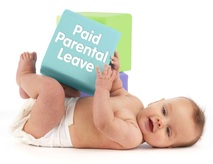
I’ve received a number of queries from employers recently looking for clarification on their duties, from a HR perspective, to employees requesting Parental Leave. This is a common human resources issue that many employers are unsure of: is the employee entitled to parental leave? If so, for how long and when can they take it? Are they entitled to pay while on parental leave?
Parental Leave was introduced in 1998 and allows parents to take parental leave from employment in respect of certain children.
Generally the employee must have been working for a year before they are entitled to parental leave. However if their child is very near the age threshold and they have been working for you for more than three months but less than one year they are entitled to pro-rata parental leave. This is one week's leave for every month of employment completed.
Under the original legislation the leave had to be taken before the child was 5 years of age but since 18 May 2006, the leave can be taken in respect of any child up to 8 years of age.
If a child was adopted between the age of 6 and 8, leave in respect of that child may be taken up to 2 years after the date of the adoption order. In the case of a child with a disability leave may be taken up to 16 years of age. In addition an extension may also be allowed where illness or other incapacity prevented the employee taking the leave within the normal period.
How long is Parental Leave?
Since 8 March 2013 the amount of parental leave available for each child amounts to a total of 18 working weeks per child. Where an employee has more than one child, parental leave is limited to 18 weeks in a 12-month period. This can be longer if an employer agrees. Parents of twins or triplets can take more than 18 weeks of parental leave in a year.
The 18 weeks per child may be taken in one continuous period or in 2 separate blocks of a minimum of 6 weeks. There must be a gap of at least 10 weeks between the 2 periods of parental leave per child. However, if an employer agrees an employee can separate leave into periods of days or even hours.
Is the employee entitled to any pay during the Parental Leave? While some companies may provide some level of pay to employees on parental leave, it is at their discretion and deemed as a benefit they offer. As an employer in Ireland, you are not obliged to pay and the employee is not entitled to be paid while they are on parental leave. Nor are they entitled to any social welfare payment like in the case where they are on Maternity Leave or Adoptive Leave.
However that is the only right that is impacted during the leave period. Taking parental leave does not affect other employment rights they have. Apart from the loss of wages, the employee’s job remains as if no parental leave had been taken, e.g. time spent on parental leave can be used to accumulate your annual leave entitlement. If your business takes annual holidays and this fall due during parental leave, the employee is entitled to take those holidays at a later date.
Similarly if during the parental leave there is public holiday on a day when they would normally be working this will be added to the period of leave.
Can I refuse to give the leave? Unless you can refuse on the grounds on non-entitlement e.g. the employee doesn’t have the required length of service you must grant the leave. However an employer can postpone the leave for up to 6 months. This must be done before the confirmation document is signed. Grounds for such a postponement include lack of cover or the fact that other employees are already on parental leave but usually only one postponement is allowed.
An employer is also obliged to keep records of all parental leave taken by their employees. These records must include the period of employment of each employee and the dates and times of the leave taken and these records must be kept for 8 years. If an employer fails to keep records they may be liable to a fine of up to €2000.
You should also note that parental leave is to be used only to take care of the child concerned. If the employee works in another job or uses the leave for another purpose the employer is entitled to cancel the leave.
What about when the employee returns?
As with Maternity and Adoptive Leave an employee is entitled to return to their job after the parental leave unless it is not reasonably practicable for the employer to allow them to return to their old job. If this is the case they must be offered a suitable alternative on terms no less favourable compared with the previous job including any improvement in pay or other conditions which occurred while they were on parental leave.
Since 8 March 2013, when an employee returns to work after taking parental leave, they are entitled to ask for a change in their work pattern or working hours for a set period. An employer must consider your request but is not obliged to grant it.
The contents of this article are necessarily expressed in broad terms and limited to general information rather than detailed analyses or legal advice. Specialist professional advice should always be obtained to address legal and other issues arising in specific contexts.

 RSS Feed
RSS Feed